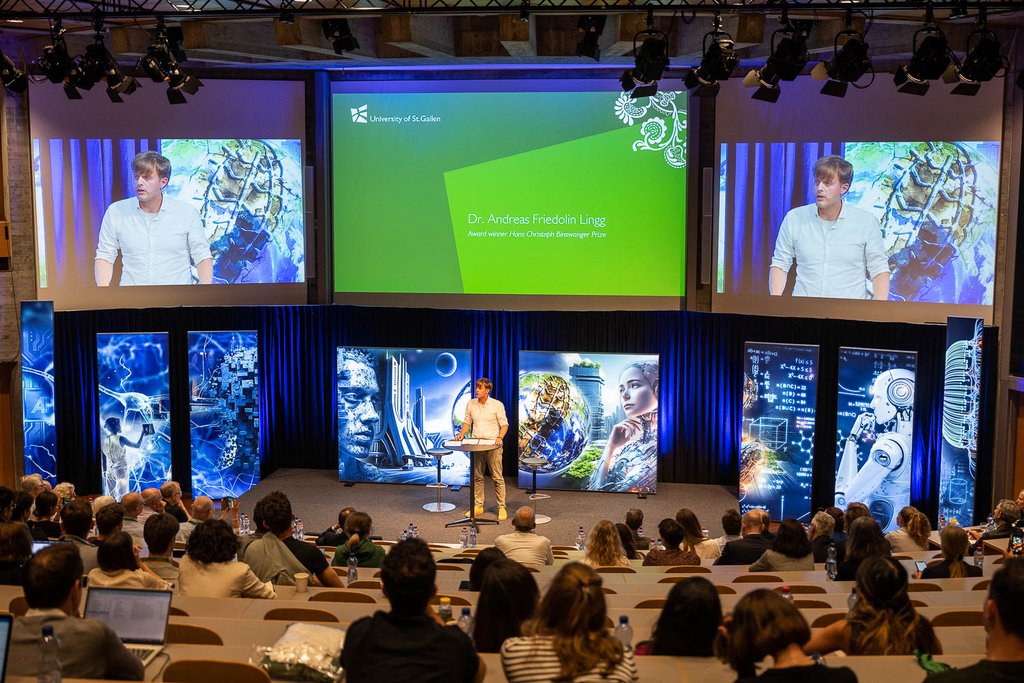People - 18.09.2023 - 15:24
Hans Christoph Binswanger Prize 2023 goes to Andreas Lingg
This year's Hans Christoph Binswanger Prize was awarded during the international symposium "Universities in the Age of Uncertainty". This year's laureate is Dr. Andreas Lingg from the University of Witten/Herdecke.

Andreas Lingg, winner of the Hans Christoph Binswanger Prize 2023 giving his award speech
Every two years, the University of St. Gallen (HSG) awards the Hans Christoph Binswanger Prize to young researchers from the social sciences and humanities. The lucky winner in 2023 is Dr. Andreas Lingg. He was awarded for his research work, which was published as a book entitled "The Discovery of the Economy". In it, he works through the history of silver mining in the Ore Mountains and shows how this fundamentally revolutionised the economics of the Middle Ages and thus paved the way for a modern capitalist economic order. Andreas Lingg is a research associate at WittenLab and founder and project manager of the academic teaching and research platform sieben:viertel.
In keeping with the spirit of its namesake, the economist and long-time HSG professor Hans Christoph Binswanger (1929-2018), the prize commemorates the importance of economics as a science that serves life. "Professor Binswanger dedicated his entire career to the very question that is driving all of our discussions on sustainability: how can an economic system that is based on exponential growth lead to an economic and ecological balance?" said HSG President Prof. Dr. Bernhard Ehrenzeller in his welcome address.
High time to rethink the world
Jury member Prof. Dr. Martin Kolmar gave the laudatory speech. "Andreas Lingg is a very gifted researcher, and we hope that the Binswanger Award will go some way to ensuring that his work receives the attention it deserves." His book not only fits very well thematically with the goals of the Binswanger Prize, but is also close in spirit to Hans Christoph Binswanger's ideas on how economics should be conducted. However, Martin Kolmar admitted that he had been sceptical at the beginning. "Why the heck should I care about silver mining in Saxony in the 13th century?" was his initial reaction. But the examination of the subject matter soon proved him wrong. In his book, the author vividly shows how silver mining in Saxony from the 13th century onwards contributed significantly to fundamentally revolutionizing the economy of the Middle Ages and thus paved the way for modern capitalist society. Why is this important? At that time, it was necessary to develop innovative ways of thinking and to fundamentally rethink the way we see the world. The same is true today, says Martin Kolmar: "Today we are again at a threshold. Our old ways of thinking led us to the brink of ecological disaster. Maybe it is time again to reimagine our way of being, our relationship to what might be called nature, the epistemic and ontological premises on which we build our understating of the world and our role in it. To reimagine capitalism. It can be done because it has been done before.”
More articles from the same category
Discover our special topics











